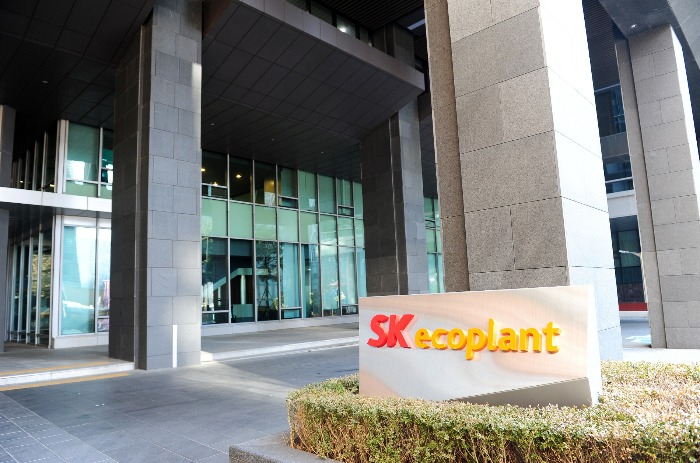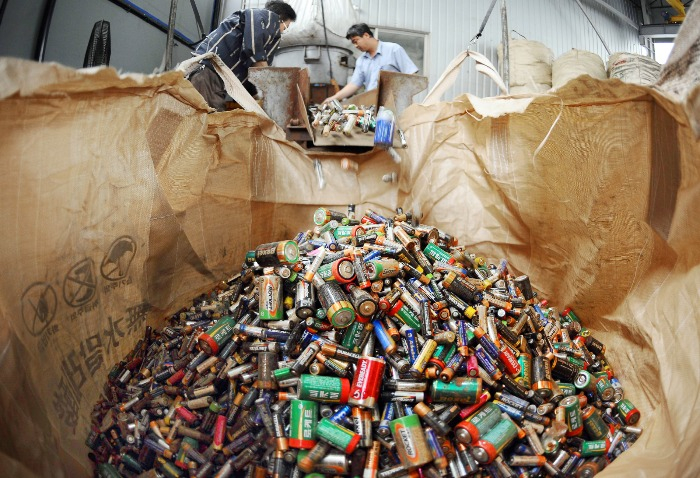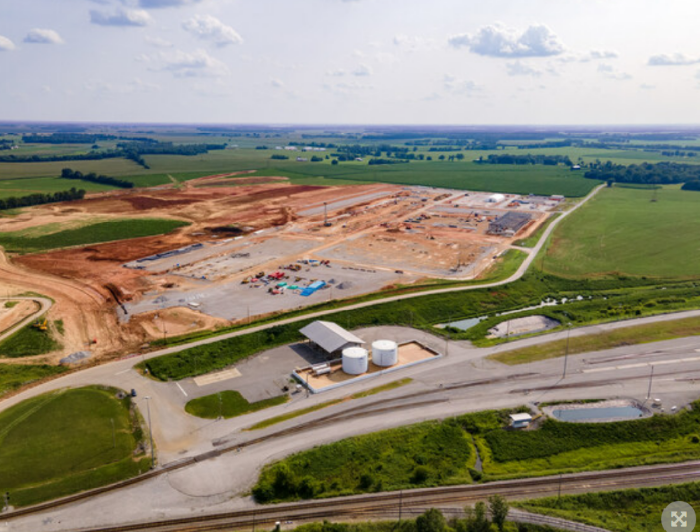Batteries
SK Ecoplant develops core battery recycling technologies
The company will apply them to its battery recycling plant in S.Korea, scheduled for completion in 2025
By Nov 14, 2023 (Gmt+09:00)
2
Min read
Most Read
LG Chem to sell water filter business to Glenwood PE for $692 million


KT&G eyes overseas M&A after rejecting activist fund's offer


Kyobo Life poised to buy Japan’s SBI Group-owned savings bank


StockX in merger talks with Naver’s online reseller Kream


Meritz backs half of ex-manager’s $210 mn hedge fund



South Korea’s SK Ecoplant Co. has developed four core battery-recycling technologies, including recovering nickel and cobalt from spent lithium-ion batteries, which it said maximizes their recovery rate, while minimizing the battery recycling process.
The four technologies also include improving the performance of solvent extraction, used to separate and recover nickel and cobalt from used batteries, as well as fully discharging batteries at a much higher speed than the conventional method before disassembling them.
SK Ecoplant, a construction engineering and waste management company, said on Tuesday it has developed them in collaboration with the state-run Korea Institute of Geoscience and Mineral Resources.
With the new technologies, it achieved a recovery rate of 97% of nickel and cobalt from waste secondary batteries. SK claimed it is the industry’s highest recovery rate for the metals among the technologies using the solvent extraction method. Nickel and cobalt are core minerals of battery cathode materials.
Their purity exceeded 99.9%, high enough to be used in actual battery manufacturing.

An SK Ecoplant official said the solvent extraction method involves a trickier technology than the dry method.
“We will be able to lower not only operating costs, but also facility investment costs for battery recycling.”
SK Ecoplant has applied for patents for the new technologies and plans to commercialize them in pilot plant operations.
After conducting feasibility tests on the new technologies, it will apply them to its battery recycling plant in Gyeongju, North Gyeongsang Province, scheduled for completion in 2025.
The new technologies also allow SK Ecoplant to produce lithium hydroxide used in the production of batteries.

Additionally, SK Ecoplant has joined hands with Sungkyunkwan University in Seoul to develop technology to reduce the amount of water used in the metal recovery process by half through improving the performance of the solvent extractant.
BATTERY DISCHARGE
Regarding battery discharge technology, SK Ecoplant reduced the time required to fully discharge a discarded battery by up to 49 minutes from 24 hours in collaboration with the Korea Advanced Institute of Science and Technology (KAIST), a prestigious research university in South Korea.
It typically takes about a day to fully discharge a spent battery.
There is a risk of fire or explosion if the waste battery is not completely discharged before extracting rare metals.
Meanwhile, SK Ecoplant said in September it will launch a $65.8 million battery recycling joint venture in the US in collaboration with Ascend Element Inc., a US lithium-ion battery recycling firm.
Write to In-Hyeok Lee at twopeople@hankyung.com
Yeonhee Kim edited this article.
More to Read
-
 BatteriesSK Ecoplant, Ascend Elements in $66 mn US battery recycling JV deal
BatteriesSK Ecoplant, Ascend Elements in $66 mn US battery recycling JV dealSep 26, 2023 (Gmt+09:00)
3 Min read -
 EnergySK Ecoplant to join Canada's $4.5 bn green hydrogen project
EnergySK Ecoplant to join Canada's $4.5 bn green hydrogen projectMay 17, 2023 (Gmt+09:00)
1 Min read -
 BatteriesSK Ecoplant to build waste EV battery recycling plant in China
BatteriesSK Ecoplant to build waste EV battery recycling plant in ChinaMay 08, 2023 (Gmt+09:00)
1 Min read -
 BatteriesSK Ecoplant targets European waste battery recycling market
BatteriesSK Ecoplant targets European waste battery recycling marketMar 10, 2023 (Gmt+09:00)
1 Min read -
 Korean Innovators at CES 2023SK Ecoplant looks to enter US battery recycling business: CEO
Korean Innovators at CES 2023SK Ecoplant looks to enter US battery recycling business: CEOJan 11, 2023 (Gmt+09:00)
2 Min read
Comment 0
LOG IN


